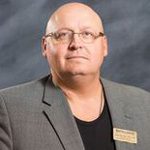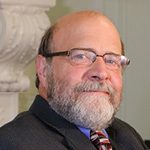With Spalding University quickly shifting all classes online for Session 5 in order to prevent the spread of the coronavirus, the staff of the Spalding Library has provided crucial support to faculty members who are making the transition.
Instruction and Learning Services Librarian Leah Cover said faculty members have reached out to library staff with a positive attitude, willing to learn ways to adapt their courses to an online format and recognizing how important it is to go online to ensure physical distancing and public safety.
They’ve encountered librarians who are eager to help.
“I think overall people across Spalding have been really flexible and adaptable and positive,” Cover said. “Something that I’ve been saying to people and to myself is that most people know this is a different situation than if someone was planning an online course (under conventional circumstances) and had lots of time to prep. It’s probably healthy for people to have that outlook – that it doesn’t have to be perfect.”
During the week of March 16, the library hosted a Faculty Online Assistance Center with in-person consultations (at a safe physical distance) and virtual support to full-time and adjunct instructors. Since Session 5 began on March 23, the librarians have continued offering a range of virtual services to the campus community.
“Don’t hesitate to reach out,” Cover said. “We’re here.”
In the Faculty Online Assistance Center sessions, Senior Manager of Library and Online Services Mimi O’Malley, Access Services Librarian Brandi Duggins and Cover helped faculty with learning management system issues, electronic resources for courses and access to important web-based technology such as GoToMeeting. O’Malley and her team worked closely with Chief Information Officer Ezra Krumhansl and his information technology team to rapidly ramp up the quick transition.
Dean of Graduate Education Dr. Kurt Jefferson said the library and IT staffs had put forth “heroic efforts” to get Spalding fully online for Session 5.
“Mimi, Ezra and their teams have responded to the unprecedented transition of nearly 75 percent of our in-seat classes to online delivery in ways that would have been unimaginable two weeks earlier,” Jefferson said.
SPALDING LIBRARY WEBSITE | Overview of resources, hours and programs
UNIVERSITY’S Healthy Together COVID-19 PAGE | Information, updates and resources
RELATED | 5 tips for faculty moving courses online
Cover said she and her colleagues provided several faculty members with instructions for putting their lectures into a video format over Spalding’s learning management systems Moodle and Canvas. Some needed help recording a PowerPoint presentation with a voice-over. Others wanted a PowerPoint that displayed their faces via a webcam.
“Unless you’re familiar with some of these software programs, a lot of it can be overwhelming because there are a lot of options,” Cover said. “The biggest thing has just been talking to people about where they are and what they need and pointing them to what makes the most sense for them.”
Cover said a key part has been to direct faculty to the robust tutorials that are already provided by programs such as Canvas and GoToMeeting.
“We can kind of just point them to those things once they understand the basics, and they’re like, ‘Oh, great, it’s all here. Cool, I’ll figure it out,'” Cover said.
Cover said she thinks the library was prepared for the challenge of helping the campus move online because the staff had plenty of experience working on virtual platforms and helping faculty create online courses. Cover wrote tutorials on the subject several months ago.
She said the Center for Teaching and Learning and Quality Enhancement Plan staff have already been engaging faculty for months on developing and learning methods for delivering curriculum online because it is the “direction higher ed is going anyway.”
“So we should be on that boat and ahead of that curve,” she said. “I’ve been really impressed with the excitement that a lot of people have shown that there can be some really inventive and creative and robust ways to teach online and that it’s not a lesser version of teaching. It just requires a different set of skills and some thinking outside the box – or outside the classroom.
“We have some people at Spalding who are thinking really creatively and doing really great work teaching online. We can rely on that expertise within our own institution.”
That library staff is doing its part to share its expertise.
Cover and her library colleagues have taken satisfaction in knowing they are helping faculty and students navigate the move online.
“I think I can speak for all of us when I say one of my favorite parts of working in the library is getting to work individually to help them trouble-shoot and problem-solve,” she said. “I enjoy being in a position where we can help people figure out ways that work for them.”
Library access: The Spalding Library remains open for in-person visits on a very limited basis, in order to accommodate only the students who have no other access to a computer or the Internet. Students, who must swipe their Spalding ID to enter the building, should not come to the library for any reason other than to use the computers for the time they need to complete their classwork.
The library staff is available for virtual support from 9 a.m. to 8 p.m. Monday-Thursday, 9 a.m.-5 p.m. Friday-Saturday and noon-5 p.m. Sunday.

